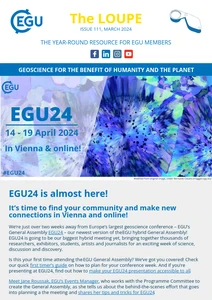President: Cinzia Bottini
(ssp@egu.eu)
Deputy President: Marc De Batist
(marc.debatist@ugent.be)
The Stratigraphy, Sedimentology and Palaeontology Division (SSP) focuses its activities on all aspects of the sedimentary record. About 70% of the Earth surface is covered by sedimentary deposits, which are eroded and deposited right at the contact between the solid lithosphere and the atmosphere, biosphere and hydrosphere. Sedimentary rocks record the history of our planet since almost 4 billion of years and play a pivotal role for our understanding of the evolution of life. This deep-time archive of Earth history is studied with a wide range of analytical techniques providing ever stunning details on the evolution of our planet. Sedimentary basins host important natural resources like coal, gas, oil, ore deposits and groundwater and therefore a better understanding of the physical, chemical and biological processes controlling the formation and distribution of sediments and sedimentary rocks is of utmost importance for our society.
News
Obituary Judith Ann McKenzie
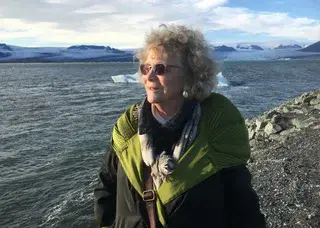 Professor emeritus ETH Zürich, Switzerland
Professor emeritus ETH Zürich, Switzerland
Recipient of the Jean Baptiste Lamarck Medal 2006
It is with deep sadness that we announce the passing of Judith McKenzie on 11 August 2023. Judy was a remarkable scientist, a great educator, a wonderful colleague, and a dear friend to so many of us. Those fortunate enough to have crossed paths with Judy will forever remember her enthusiasm and vibrant personality. She always radiated a highly positive attitude towards both science and life itself.
After accomplishing a Master Degree in her native USA and a short passage by industry, Judy moved to Europe and her journey in academia began at ETH Zürich, where she completed her doctoral studies in 1976 with Prof. Ken Hsü as her supervisor. For her PhD thesis she had studied the formation of dolomite in the sabkha of Abu Dhabi using isotope geochemistry as a major new tool. After completion of her thesis she became senior scientist at the Geological Institute of ETH, where she was instrumental in establishing the stable-isotope laboratory, which at that time was one of the very first isotope labs in European Earth Science departments. Judy belonged to the pioneers in establishing isotope geochemistry in sedimentology, paleoceanography and limnogeology. Her thirst for knowledge and her dedication to the field earned her a position as an associate professor at the University of Florida in Gainesville, USA, a role that would later mark a turning point in her career. In 1987 Judy returned to her academic home at ETH Zürich. Her dedication and contributions were undeniable, and in 1996, she achieved the significant milestone of becoming a full professor… the first woman to become professor at the Department of Earth Sciences of ETH Zürich. Her journey served as an inspiration for countless aspiring female scientists to whom Judy will remain a role model.
She first focused her research on investigating past climate and environmental shifts preserved in biogene and chemical sediments from both lake and ocean ecosystems. The Mediterranean salinity crisis was one of her early exciting research themes where she made a number of most significant scientific contributions. Since the early 90’s her research refocused on exploring the influence of microbes on the formation of dolomite and other minerals. Judy's groundbreaking achievements have significantly advanced the realms of limnogeology, chemical sedimentology and geomicrobiology. But her influence extended far beyond her research accomplishments. She played a pivotal role in fostering participation of Europe, and in particular Switzerland, in international ocean drilling programs, catalyzing the careers of countless researchers. Her services to the international scientific community included the presidency of the International Association of Sedimentology (IAS) and the European Association of Geochemistry (EAG), amongst others. She was very active in the Stratigraphy, Sedimentology and Paleontology (SSP) Division of EGU and her impactful contributions garnered great recognition within the global scientific community, resulting in the receipt of multiple prestigious awards. Judy was the first recipient of the Jean-Baptiste Lamarck Medal of the SPP Division. As a mentor, her dedication knew no bounds, nurturing her former students and post-doctoral researchers. As a gifted teacher she was one of the co-founders of the International Summer School of IAS which started in 2005 with a course in Pontresina, Switzerland. Her impact as a researcher and teacher to the field of sedimentary geochemistry and geomicrobiology was immeasurable, a testament to her passion for sharing knowledge with younger generations.
Judy McKenzie's legacy will forever shine bright in our hearts and minds. Her vibrant personality, unwavering enthusiasm, and tireless dedication will continue to inspire those who were fortunate to have known her. Her presence as a trailblazer, supporter, promoter, and model for students and colleagues will continue to shape the scientific community for generations to come. Although she may no longer be with us, her impact and memory will endure, serving as a beacon of inspiration for all who aspire to make a difference in the world of science. All this is reflected in an early interview that she gave at the European Association of Geochemistry some years ago that can be viewed at this Youtube video.
We extend our heartfelt condolences to Judy's family, friends, and colleagues during this difficult time. While we mourn the loss of a brilliant mind and a treasured friend, we also celebrate the incredible legacy she leaves behind. Judy McKenzie's contributions to science and the scientific community will forever be etched in our collective memory.
Daniel Ariztegui, University of Geneva, Switzerland
Marc De Batist, Ghent University, Belgium
Helmut Weissert, ETH Zürich, Switzerland
Recent awardees
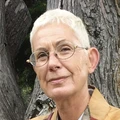
- 2024
- Jean Baptiste Lamarck Medal
The 2024 Jean Baptiste Lamarck Medal is awarded to
Silvia Frisia for her highly significant impact as a sedimentologist researching carbonate-based palaeoclimate science, in particular through her work on carbonate fabrics in cave deposits, or speleothems.
Read more
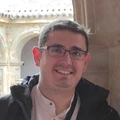
- 2024
- Division Outstanding Early Career Scientist Award
The 2024 Division Outstanding Early Career Scientist Award is awarded to
Miguel Ángel Maté González for his outstanding work in palaeontology and archaeology developing a new methodology for the analysis of 3D cut marks on bones.
Read more
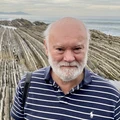
- 2023
- Jean Baptiste Lamarck Medal
The 2023 Jean Baptiste Lamarck Medal is awarded to
David A. T. Harper in recognition of his outstanding work on the evolution and biostratigraphy of Lower Paleozoic invertebrate faunas, as well as his important contributions to quantitative palaeontology education.
Read more

- 2023
- Division Outstanding Early Career Scientist Award
The 2023 Division Outstanding Early Career Scientist Award is awarded to
Stefanie Kaboth-Bahr for her outstanding work in marine sedimentology and terrestrial stratigraphy to better understand low- and high-latitude climate processes as well as land-ocean coupling in the climate system.
Read more
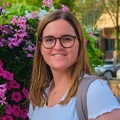
- 2023
- Outstanding Student and PhD candidate Presentation (OSPP) Award
The 2023 Outstanding Student and PhD candidate Presentation (OSPP) Award is awarded to
Alina Lucia Ludat Tectonic faulting’s impact on vegetation and soil formation in the Mara River Basin, East Africa
Read more
Current issue of the EGU newsletter


 Professor emeritus ETH Zürich, Switzerland
Professor emeritus ETH Zürich, Switzerland



